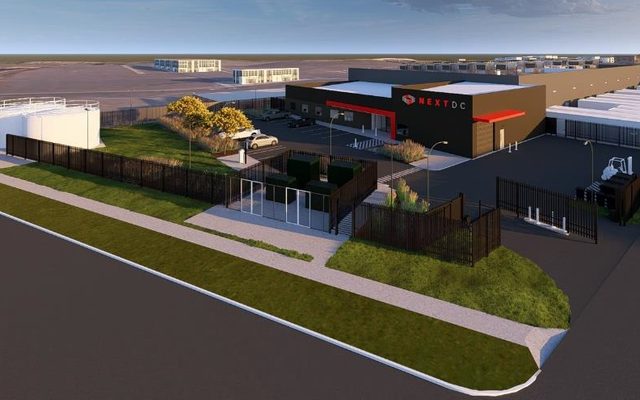This article is from the Australian Property Journal archive
CONTINUING its raft of housing policy announcements, Victoria’s Allan government said it will look to cut subdivision red tape in a bid to allow more homes on blocks, while it confirmed it will replace the embattled building regulator with a “new building watchdog with teeth”.
Speaking at the Melbourne Press Club, Premier Jacinta Allan announced the government would immediately begin a review into how to fix the current system, where subdivisions “take too long and often discourage home building”.
“The review won’t inform government whether to proceed – it has decided to. This is a review to outline the best way forward,” it said.
Planning and building systems will be streamlined and allow more people to add a second home, build two new homes, or subdivide a block into two lots.
Options on the table include faster 10-day subdivisions – down from 60 days and often longer – criteria-based planning permit exemptions, or no requirement for a planning permit at all.
“This just makes sense: if you’ve got land you don’t need – we’ll make it easier for you to subdivide it and sell it, putting money back in your pocket and giving another Victorian the chance to buy their own home,” Premier Allan said.
“By unlocking land in people’s backyards – we’ll unlock even more new homes for young families in our established suburbs.”
The Department of Transport and Planning will look at how approvals can be fast-tracked as part of the review.
Clear limits will remain in place for trees and car parks, and overlays permit requirements, such as in flood or heritage overlays, will still apply.
The government said it will consult with industry and aim to implement reforms by April next year.
Labor late last year made changes to regulations that allow homeowners to build small second homes, such as granny flats, without a planning permit.
The Victorian government has been making a housing policy announcement blitz, with a focus on boost supply amid a housing crisis. This week, it has also revealed intentions to release and rezone surplus state-owned land near trains that will unlock around 9,000 homes across Melbourne and the regions and announced the largest ever single release of greenfield land for development, to deliver 180,000 homes, and it unveiled 25 train and tram activity centres around Melbourne – which will ultimately total 50 – that will be earmarked for higher-density housing.
Melbourne’s rental market is witnessing a crushingly low vacancy of 1.67%, according to the latest PropTrack data.
The announcements are in tandem with its ambitious Housing Statement, released a year ago, which aims for the delivery of 800,000 homes over a decade – and obligations to be fulfilled as part of the National Housing Accord and Housing Australia Future Fund.
The Allan government has also announced this week a major stamp duty concession that will be available to off-the-plan apartment, unit and townhouse buyers for the next 12 months.
“Watchdog with teeth”
The government also announced yesterday an overhaul of the building regulator, replacing the Victorian Building Authority (VBA) with a “new more powerful watchdog, the Building & Plumbing Commission, to oversee building and plumbing industries across the state.
The new regulator will bring together all aspects of building quality control – regulation, insurance and dispute resolution – into a single agency.
It comes on the back of a damning independent review into the VBA by Weir Legal and Consulting that found systemic failures in the authority applying its powers to protect consumers from builders who breached legislation or engaged in unprofessional or incompetent conduct, with seven case studies used in the final report.
Identified complainants had suffered and are suffering “severe financial, emotional and physical distress” from their dealings with the building industry and the regulator, the report said.
“Every aspect of their lives has been negatively impacted. They have watched their savings or superannuation be replaced with debts they cannot bear.”
Among the findings were a “dismissive” culture towards complainants, with complaints being delayed, lost or ignored altogether for months, homeowners being told to provide their own expert reports for the VBA to look at, a lack of technical inspections, and a tendency to only investigate issues and practitioners identified in complaints, instead of also assessing other issues.
“Because the regulation of the sector has been ineffective over many years, poor standards of building work and unethical conduct have been allowed to flourish in Victoria’s building industry,” the report said.
The Australian Apartment Advocacy (AAA) welcomed the overhaul of the Victoria Building Authority. Its own research of 2,000 apartment owners in 2023 found that 58% of Victorians had experienced defects with 76% still waiting for repairs to be conducted by the builder or developer.
As a result, only 8% felt comfortable buying off the plan and 75% wanted assurance of the quality of the build, which could only be achieved via proactive audits.
Samantha Reece, CEO and founder of AAA, said the neglect of homeowners had now resulted in a crisis in confidence by apartment buyers.
“Purchasing a home is one of the most expensive decisions that someone makes in their life and to find out that they have a building that is so defective, that in some cases has to be rebuilt, is a clear flaw on the current system.”




